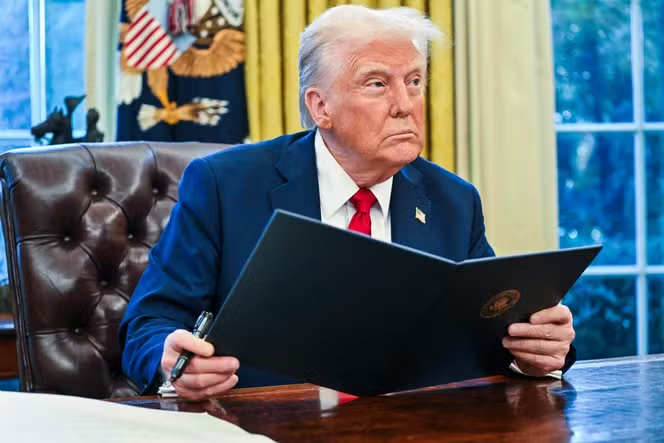US President Donald Trump will introduce new tariffs on Canada, Mexico, and China this Saturday. The move could disrupt supply chains in industries like energy and automotive while pushing prices higher.
Trump plans to impose a 25 per cent tariff on imports from Canada and Mexico. He claims both countries have failed to prevent illegal immigration and the flow of fentanyl into the US. He also wants a 10 per cent tariff on Chinese imports, arguing that China contributes to the drug trade.
He also points to trade deficits with these nations as another reason for the tariffs. The US imports more from them than it exports, which he sees as a problem.
However, targeting the country’s three largest trading partners carries risks. Trump won the November election partly due to concerns over the rising cost of living.
Gregory Daco, chief economist at EY, warns that higher import costs could reduce consumer spending and business investment. He expects inflation to rise by 0.7 percentage points in the first quarter before easing.
“Uncertainty over trade policy will shake financial markets and put pressure on businesses,” he said. Trump’s supporters, however, believe tax cuts and deregulation will offset the impact.
Trade partners prepare to respond
Democratic lawmakers criticised the tariffs. Senate Minority Leader Chuck Schumer warned they could increase costs for American consumers.
Canada and Mexico supply large amounts of agricultural products to the US, with imports worth tens of billions of dollars each year. The automotive sector will also feel the impact. According to S&P Global Mobility, Canada and Mexico supplied 22 per cent of the cars sold in the US in 2024.
North America’s auto industry relies on integrated supply chains. Tariffs on components could raise production costs, leading to higher car prices.
Schumer said, “We should target countries like China that manipulate markets, not punish our allies.”
Canada and Mexico have both warned they will retaliate if Trump moves forward. This raises fears of an escalating trade dispute.
Canadian Prime Minister Justin Trudeau said his government is ready to act. “We don’t want this, but if the US imposes tariffs, we will respond,” he stated.
Mexican President Claudia Sheinbaum took a more measured approach. She said her government has multiple plans and will respond accordingly.
Oil tariffs under review
The proposed tariffs could also affect the energy sector. Higher import taxes on crude oil from Canada and Mexico might push up US energy prices, particularly in the Midwest.
Trump has suggested he may lower tariffs on oil or offer exemptions. Speaking to reporters on Friday, he said he was considering a 10 per cent tariff instead of a higher rate.
Canada supplies nearly 60 per cent of US crude oil, according to the Congressional Research Service. Many US refineries process Canadian heavy oil, and alternative sources may be limited.
Tom Kloza of the Oil Price Information Service warned that tariffs could raise refining costs. This, in turn, might lead to higher petrol prices for consumers.
